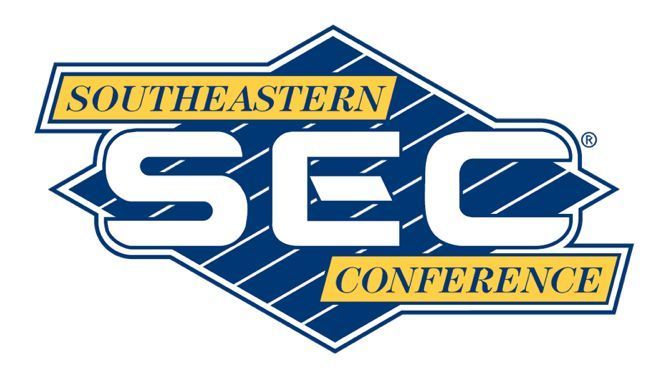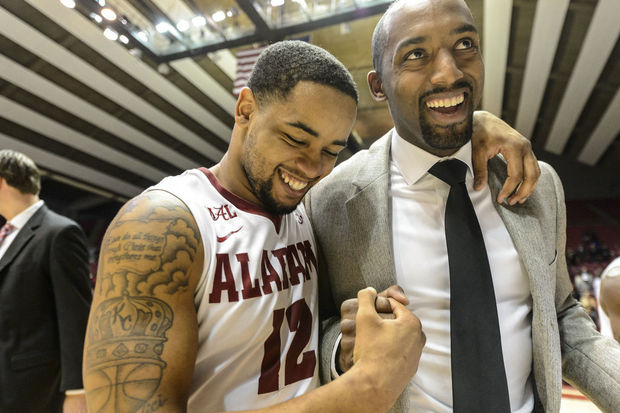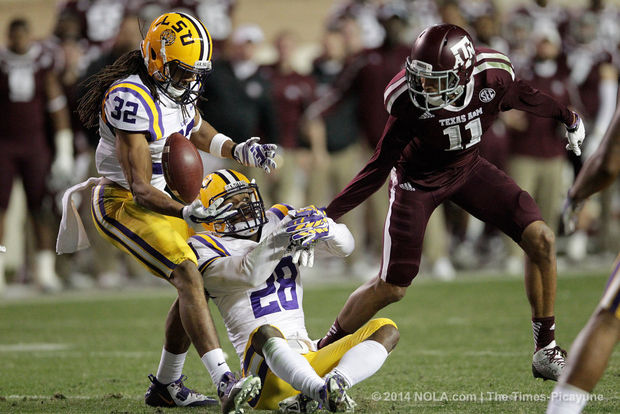

INDIANAPOLIS (AP) — The NCAA Board of Directors overwhelmingly approved a package of historic reforms Thursday that will give the nation’s five biggest conferences the ability to unilaterally change some of the basic rules governing college sports.
If the 16-2 decision stands, there will be striking differences between the 65 largest schools and the more than 280 others in Division I beginning as early as Oct. 1, though few expect change to come that quickly.
“I am immensely proud of the work done by the membership,” NCAA President Mark Emmert said. “The new governance model represents a compromise on all sides that will better serve our members and, most importantly, our student-athletes. These changes will help all our schools better support the young people who come to college to play sports while earning a degree.”
Representatives from the five richest leagues — the ACC, Big Ten, Big 12, Pac-12 and SEC — will hold nearly twice as much voting power (37.5 percent) as any other group on a newly created council, where most legislation will be approved or rejected. The five other Football Bowl Subdivision leagues would account for 18.5 percent while the second-tier Football Championship Subdivision and non-football playing schools would split up another 37.5 percent of the vote. Athletes and faculty will account for the rest.
Commissioners and school leaders from the power conferences have until Oct. 1 to create a wish list of issues they want to handle on their own.
Any items that make the wish list would have to be approved by at least three of the five power-conference reps and at least 12 of the 20 presidents or chancellors on an expanded board of directors. Then, one representative from each of the 65 schools in the power-five leagues and three student-athletes from each conference would vote on each item. Passage would require 60 percent of the 80 votes and a simple majority of support from schools in at least three of the five conferences or a simple majority of all votes (41) and a simple majority from schools in four of the five leagues.
Proponents believe all the checks and balances will work.
“It does provide degrees of autonomy for the five high-resource conferences,” said Nathan Hatch, board chairman and Wake Forest president. “This is not complete autonomy, we’re still part of Division I, but I think it allows us to provide more benefits to student-athletes.”
The legislation still could be overridden in the next 60 days.
If 75 schools sign the override measure, the board must take a second look at the plan. If 125 schools join the movement, the changes would be suspended until the board schedules a vote to reconsider.
The No. 1 goal for the big conferences will be expanding scholarships to include more money toward the full cost-of-attendance — funding that goes beyond tuition, room and board, books and fees. Legislation to give athletes an additional $2,000 to cover college expenses was approved by the board in October 2011 but was overridden two months later by the smaller schools, spurring the big leagues’ vocal lobbying effort to be granted more autonomy.
What else could make the wish list? The big conferences also want to invest more in athlete health care and continuing education, and want to ensure athletes retain scholarships for four years.
Big 12 Commissioner Bob Bowlsby recently complained that cheating pays in college sports. It is unlikely the board would allow the five biggest conferences to set their own policing parameters for rules violations.
Critics worry that the impact will create an even greater split between wealthy leagues and everyone else..
“I think it’s going to be great for those five conferences and that’s about it,” said Gerald Gurney, president of The Drake Group, an NCAA watchdog. “I don’t think it’s going to be a good step for non-revenue sports or for Title IX. We are going to get into a new phase of competition, and there will be no holds barred.”
Some leagues agree with the overall concept of the changes but have other concerns.
A group of compliance officers and faculty representatives wrote to board Chairman Nathan Hatch in hopes of getting greater representation in the decision-making process. Big East and Ivy League officials expressed concerns over giving the five non-power, FBS-playing leagues permanent seats on the board, meaning almost two-thirds of the schools that do not play in the FBS will only hold seven seats on the board.
Conference USA Commissioner Britton Banowsky also told the NCAA his league strongly opposed any changes in transfer rules that would permit athletes to transfer “from our institutions to high resource conference institutions without restrictions unless it is the result of shared governance discussions and provides for shared voting privileges for all Division I conferences/institutions.”
Banowsky also chairs the NCAA’s infractions committee. The board agreed and deemed transfer rule changes are off limits.



